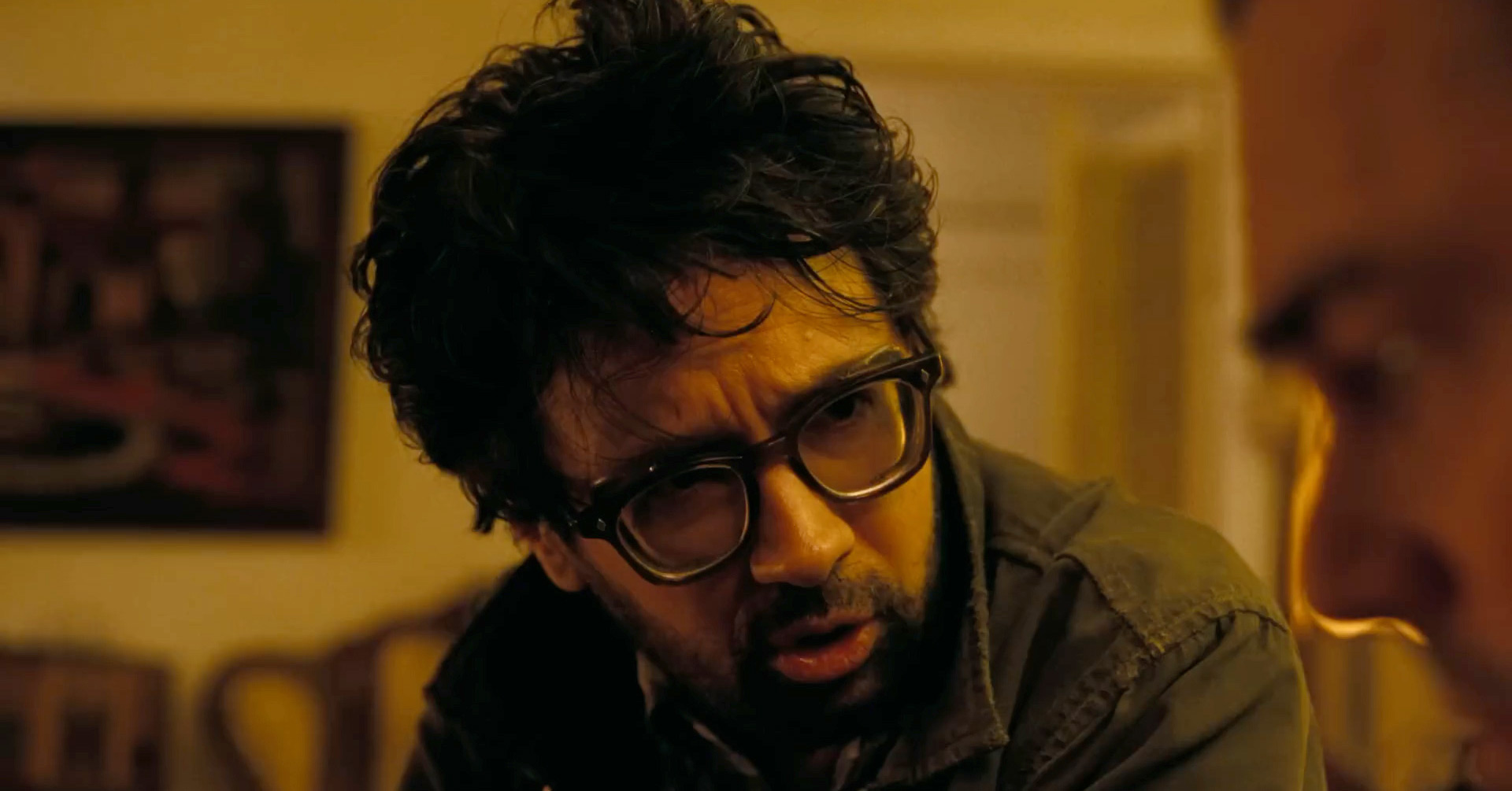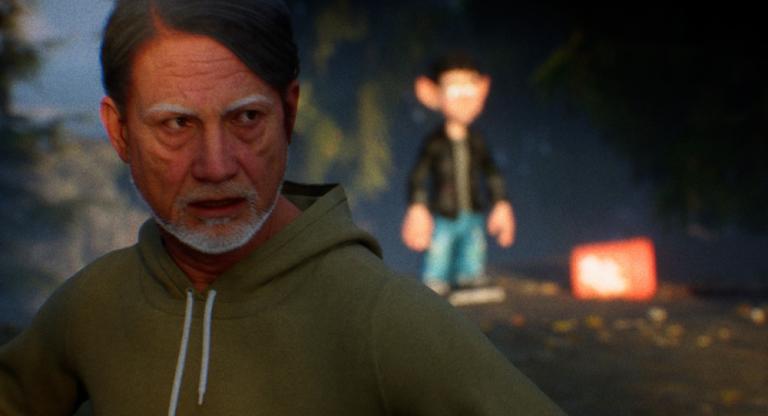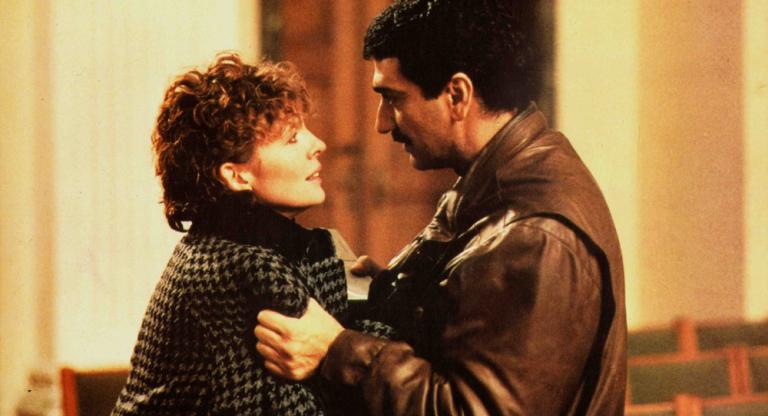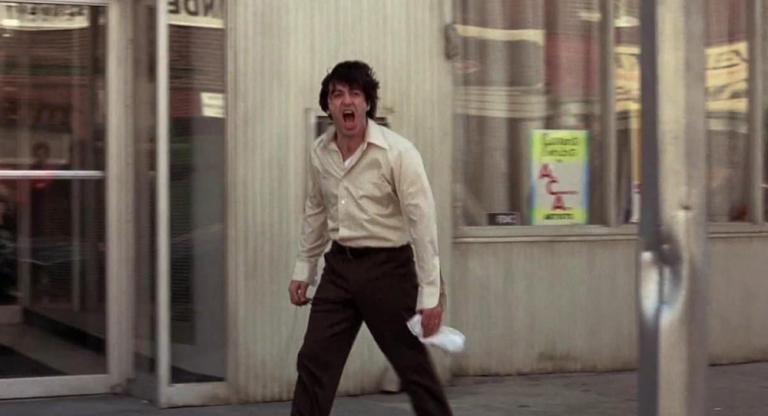I caught up with Paul Grimstad, polymath, Yale professor, musician, writer, actor, over the phone during his train journey from New Haven to NYC, the place he’s called home for his adult life. The occasion for our call is the release of Paul Thomas Anderson’s latest film, One Battle After Another, a loose riff on Thomas Pynchon’s Vineland that’s as informed by the present moment as it is by the activist histories chronicled in books like Bryan Burrough’s Days of Rage.
Nearly twenty years after appearing in Ronnie Bronstein’s Frownland (2007), Paul has achieved the monumental accomplishment of eclipsing his sole previous acting credit in a shoestring underground classic with a role that features him stealing scenes from Leonardo Dicaprio in a new PTA film.
This week Grimstad is also releasing his album SONGS for general consumption as opposed to his usual one-to-one sharing with a rarefied, personally selected audience of friends and creative cohorts. SONGS is a ripping, bewildering, quixotic experience that careens through the span of recorded music like an electric pocket orchestra strapped on a missile of tweaked bubble gum rock ‘n’ roll. It’s accompanied by another LP, Music for Film, a collection of his soundtrack work of the past fifteen years for NYC indie stalwarts like The Safdie Bros, Sean Price Williams, Nathan Silver, Ronnie Bronstein and many more.
In our talk, Paul managed to cover it all—his cascading, exploding thought process, rules for creativity, and shamanic level of independent discipline and how he kept it all going—all while trying not to bother the other train passengers on the way from Yale to Grand Central. Nevertheless, at one point, he did accidentally stick his hand into dog shit.
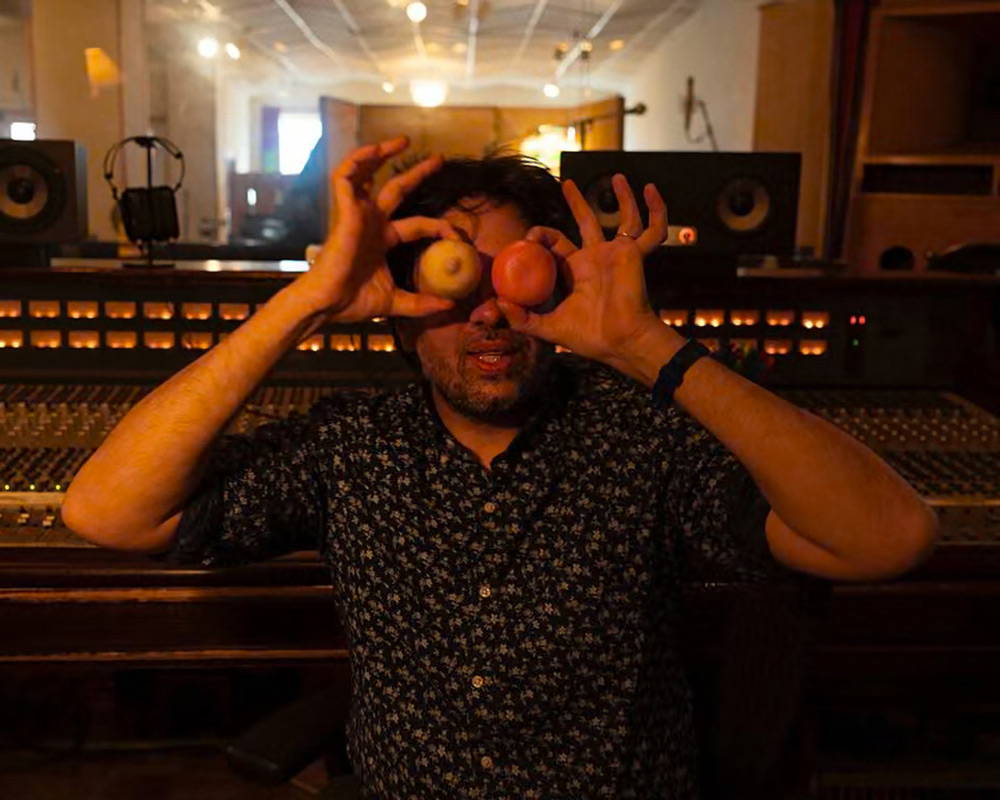
Paul Grimstad: How are you, man?
Luke Rathborne: I'm doing good. How are you? Were you just at Yale?
PG: Yeah, I'm on a train right now between New Haven and Grand Central.
LR: Is it an okay time to talk?
PG: Sure, I hope I'm not annoying the people around me. Keep that in there, actually. That's kind of cool. It’s very contextual.
LR: What was the prep for your guy Howard Sommerville in the new PTA movie?
PG: Oh man, what a whirlwind It's based on Thomas Pynchon’s wonderful and hilarious 1990 novel Vineland. The novel is kind of about what happens to hippies in the ‘80s, under Reagan. I first read it with, I would say, minimal comprehension as an undergrad at Madison Wisconsin. It was one of those books that was sitting around in every used book store. You’d see this mustard-yellow dust jacket with this drab photo of a forest fire on it and you’d be like, “Oh, this is the Crying of Lot 49 guy.”
We were all into that one. That was like the hippest thing, Lot 49. But Pynchon's angle in 1990 was, when do hippies turn into yuppies, and what do lingering ex-hippies, who are now in middle-age, do with their ‘60s ideals? Powerful corporate Reaganite yuppies versus grubby pot heads with dim memories of the Port Huron statement kind of thing. Jeff Lebowski is a version of this too. So, it's about the death radical ‘60s idealism. And it's funny. Super funny.
Leo is a wonderful Zoyd Wheeler, the protagonist of Vineland. He’s this sort of hapless pothead in the Pacific Northwest who is kind of adrift, fucked up, and off the grid. But the other piece, when I first talked to Paul about the part on the phone—and there was indeed some geeking out about Pynchon and Vineland on the phone—was he wanted me to read Days of Rage, a book about the Weather Underground.
It's also about this homegrown American resistance culture as it transpired in late ‘60s, early ‘70s. We're talking middle-class, suburban white kids who went to Columbia and Harvard blowing up banks and blowing up apartments. These kids just took it way too far, into a kind of madness. At the same time, they’re up against these kind of comic book white supremacists, and so it ends up being very topical given how crazily polarized we are right now—how nuts and partisan everyone is on both sides.
The Searchers is also in there. It didn't occur to me when I was hanging out on set and talking to Paul and the DP in Inglewood and El Paso. I was like, “Man, this is going to be like Repo Man,” you know? Now I see the expanses of El Paso—the desert, it’s that grand VistaVision Monument Valley thing, for sure.
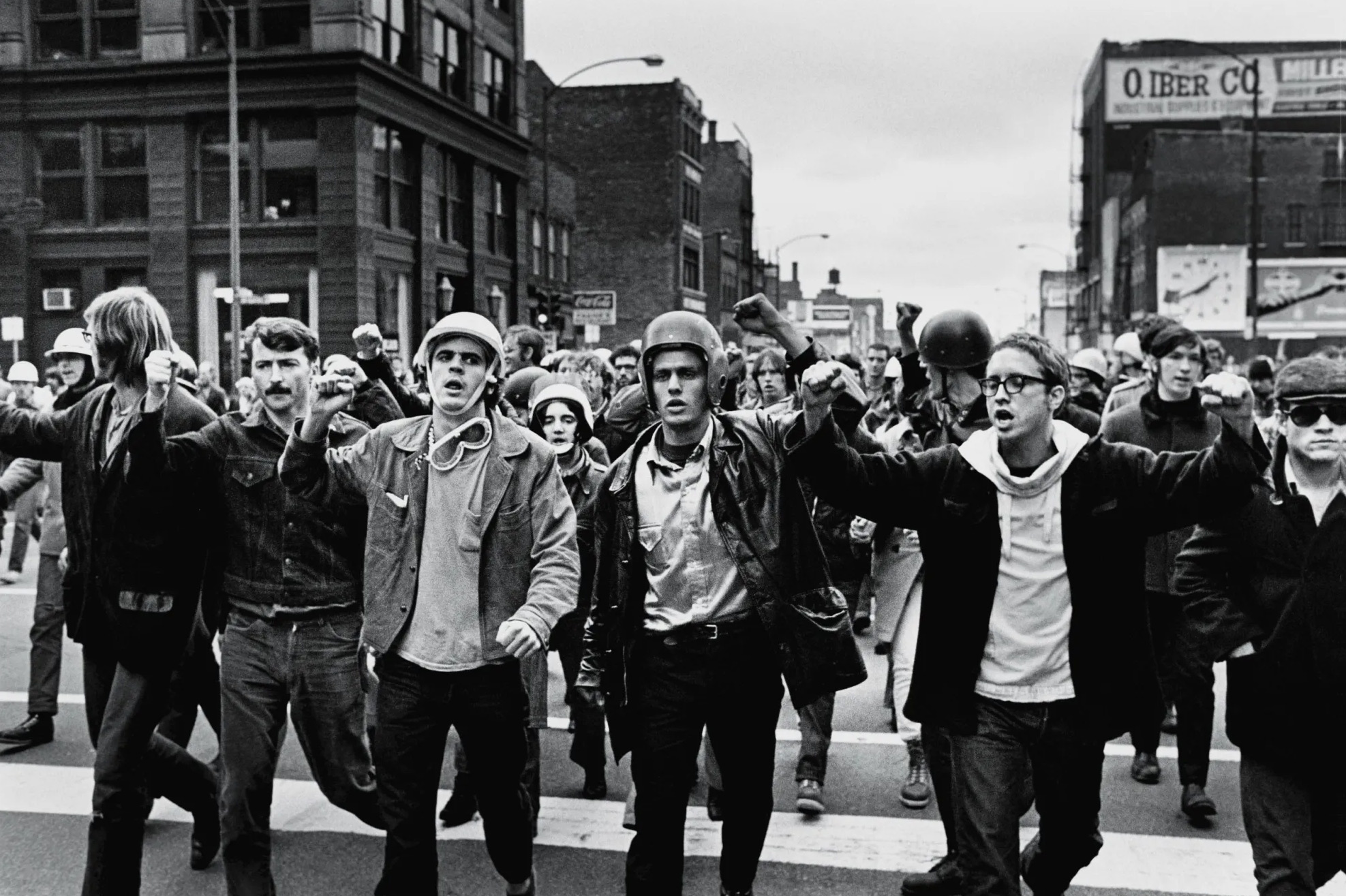
LR: It’s a good question: what happens to these pockets of revolutionaries, do they just become the old men yelling at fast trains? I can’t help but think of Neil Young’s, “Hey Hey, My My” callback—‘it’s better to burn out than to fade away.’ You have punk rockers like Johnny Rotten, you know, what made him revolutionary when he first came out was that he was so anti-everything and proactively annoying in his heyday. What’s strange is that the same person aged up, like contemporary Johnny Rotten, is awful and represents nothing.
PG: Never forget that Johnny Lydon was always just as much of an opportunist as anyone.
He's a very interesting performer, but he was really the product of a fashion scene in London at the height of a terrible socioeconomic glut. There was a garbage strike in London. Garbage was piled up 20 feet. And also, I think irritated with all this kind of bloated complacency that you were getting on the radio. I love Wings, ELO, and ABBA. The Dan. I love all that stuff because I'm an equal opportunity music aesthetics guy. But, if you were hearing that shit in 1976, in London, and you were young and angry—all you can smell is garbage as it's piling up— and then you fall in with a deeply shifty entrepreneur, slash impresario, Malcolm McLaren, and he's dating a chick who designs clothes… Boy, it doesn't take long to get your Sid Vicious and your Johnny Rotten up and running.
LR: What I’m saying is that the very nature of counterculture can be co-opted.
PG: It's always been a business. Music and movies have always been a business. The trick is to reconcile the commercial success side with the aesthetic integrity side, the artist side. Hitchcock, Kubrick, Beatles, BeeGees, Dylan, Lucas… It's not that common, but some artists have pulled it off. I’m getting out at Grand Central Station now gimme a second.
LR: I mean, Kubrick only managed to make films so many times. I wonder if he had a bit lower output than some of his contemporaries because of some of these issues.
PG: He slaved over stuff, though, too. He was like an almost pathological perfectionist about stuff. Anyway, it's like, there's less of a sense of an outside these days. This is what you were saying about oppositional culture often looking so silly and so fake. There's less, and it seems there's less and less of an outside to the big marketing machine. And that is, in part—Oh, my God, I think I just put my hand in dog shit.
Hang on… I gotta wipe this off.
Anyway, I was just thinking, as you were asking that and as I was going on and on, it’s actually a pretty good angle to try to get into this conversation about whatever the hell I'm doing in music, academia, film, writing. This thing that's thematically germane to One Battle After Another is maybe like opposition to the hyper-marketed, pasteurized, and now AI-enhanced mainstream culture. I’m not sure I’d even call it culture.
LR: I don’t think it’s an accident that you were pulled into this. The Howard character has a little bit of this chorus-like quality. He’s delivering outside information to the main character. I was recently talking to you about Dennis Hopper in Apocalypse Now.
PG: Possibly, possibly. I mean, it’s not a big part. I'm in there maybe 10 minutes max. But I think they're very dynamic scenes. Hopper in Apocalypse Now is maybe not a bad comparison, actually.
LR: It's like the underlying mania of the situation is coming out in those scenes. It's like a little bit of truth serum there for a second.
PG: Isn't that true! For my guy, it's not the case with everyone in the French 75. In my case, for my guy, it's verbal. It's not that way for Leo's character, who’s kinda fried from years of drugs. But my guy's a talker, he's always running his mouth.
LR: I know you had mentioned at first your initial reaction to getting the call for PTA was, “What the fuck?” I thought that this was about doing music! And then it began to occur to you that to be an actor in this film would actually be a really cool, fun thing.
PG: Yeah, that was more or less the first reaction.
LR: Was it disruptive to daily life to all of a sudden uproot? You’re going from Yale and this pretty rarified kind of intellectual thing to this almost opposite environment that you're suddenly dropped into, especially because the last acting role you did, Frownland, was one camera, three people on set and so on. The lowest budget a movie could possibly be, where you were saying there wasn't even a boom operator for some of the shots.
PG: From the very smallest rattiest thing to the very most opulent Warner Bros. thing. That’s the story. From Frownland to PTA! And it’s like, that might be it! Who knows if I’ll ever act again. We’ll have to see if someone else asks me.
LR: You know, you could do one of these seminars where it's like, become a Yale professor of literature and philosophy, record ten soundtracks and ten albums, and eventually, it's going to lead to acting with Leonardo DiCaprio.
PG: [Laughs] Yeah, right! As if this were in any way remotely planned! I mean, the actual lesson, if there is one, and there's probably not, but its do your fucking thing, whatever it happens to be, and do it hard, and then be a pragmatist about what comes along, and then play the tennis match with what life is throwing at you. I mean, this is the opposite of a tidy, careful, resume-building attitude. Careerism is actually just so stupid to me.
LR: Yeah.
PG: People set out to have this little resume, this little plan, and they're going to follow all the right steps, and they're going to make all the right moves, and they're going to get to the next level. I guess that's right for some people. It's definitely not my way, never has been. Maybe that's just because I'm some sort of scatterbrained. I’m coming at stuff my way, and I’m just going hard at everything. I’m going hard buying cottage cheese at Stop ‘n’ Shop, you know?
LR: [Laughs] That's it. You're from the Midwest, correct?
PG: Oh yes, rural Wisconsin
LR: I'm from New England. There's this notion when you're growing up where it's like, get a good-enough job that you don't die, you know? And I think that that is an important asset. But there is this notion of keeping your head down and working hard…
PG: I’m not saying anything that is incompatible with “work hard.” I love “work hard.”
LR: What I mean is that with the blatant careerism, sometimes people end up in a place where they've said, “I've done all the shit I'm supposed to do, and I can't even make a dollar.” You know? The corporate overlords that are pulling the strings are not rewarding your good faith.
PG: I mean, some of this is just feeling free to do and make the stuff you want to do and make. Sometimes you have to overcome some bad tape loops, some voices that are saying, “That’s imprudent, that is foolish, that is reckless, who do you think you are?” But if you’re good at stuff, and you can express that in different ways, then my god do it!
I think that for a long time I had these hang ups where I knew I was good at stuff, but I didn't want to do it for an audience bigger than a coterie of friends in NYC. But not only did I not stop what I was doing it for—this bespoke audience and sharing it with 20 or 30 people—I actually became more intensely devoted to the craft of making the records for those 20 or 30 people.
LR: Speaking of the record! I was just listening and was really interested in the Beatles references.
PG: Right to Mt. Olympus right off the bat, okay…
LR: It sounds like there is some "Ballad of John and Yoko” in the opening track [“Flash Gordon”].
PG: Quite right. I mean, that lick, first of all, I don't think anybody owns that lick. I don't think John Lennon owns that lick. Fats Domino plays that lick. John nicks it from Fats. It was no doubt nicked by Fats from someone now lost to the mists of history.
John's repurposing that, and so, I'm doing that too! [Laughs] Wildly presumptuous, I realize. Fuck it. ‘Cuz that's like public domain, you know? Like, who owns that lick?
LR: The press release for SONGS mentions the work is from a more recent period of time, but how did you decide? I know you have a lot of records that are archived. How did you decide on this set of tunes ? Were these painstaking choices?
PG: They were, they were. It was like, I kind of solicited feedback from some trusted comrades, such as Sean and Ronnie and my wife Pami. It was like, these are people that know the music and sort of know what I’m up to... I guess there was a cutoff point where I felt like I really got the production, engineering, tech stuff down. I do everything on my own, the SONGS record's got no outside engineering, really. There is one guy out in L.A., Chris McLaughlin, who mixed one [“Octopussy”].
I was also just looking for when I started to really figure it out and get the sound I wanted. But the tunes just come. I mean, I write 25 or 30 a year, and they're just there. It’s a little OCD. I get a lot of comfort just from the constraints of solving all the little problems. Some people do crossword puzzles, I compulsively write and arrange songs. I’d do it if I were Robinson Crusoe… Hey can we get a harpsichord out here? A Tascam? That’s what I’d be asking the manager of the desert island! But I was mostly going for the stuff that sounded right. And then, getting the sequence right.
LR: Do you have an estimate of how many songs you've recorded?
PG: Oh, there are probably like 400 or something…
LR: Wow. This is like the world's discovery of your music.
PG: Ha! Don’t hold your breath.
LR: How was it to amass so much music without it really getting wide circulation?
PG: Well, I mean, it's not all archival phantasm. Factory 25 brought out the Frownland score and included three songs from a record called The Others Buzz that a small Brooklyn label called Genuine Particle brought out. And so those three were banging around out there a little bit. And there are some tracks from a record called Wams ‘n’ Bams that somehow got circulated. I actually don’t remember how. Before that, I wouldn't want to release much.
LR: What year is Frownland?
PG: Frownland is 2008? But shot well before that. It kind of sat on ice for a while. There's a big, as the French say, décalage between when it was shot and when it was released. There's loads of stuff from that period, actually. Sean loves this record that I made at that time called Blammo!
LR: I thought it was interesting because I emerged into the music scene, you know, mid-2000s, moving to New York City, and it coincided with this new kind of environment where there wasn't always a pressing need to put it out there because you could share it with your peers.
PG: I remember thinking MySpace was just so absolutely depressing, like you were supposed to hustle and be your own publicist, and do all this sort of digital presentation. I remember people actually saying they were working on “creating their brand.” And at the time, I decided I wanted no part of it and went to get a Ph.D., which in the end led me to have a sort of day job as an academic, which I love! But I found that whole Myspace thing so off-putting. It was like, I don't want to do this. This is lame, you know? I love writing songs, I love production, I love making music, I love arranging, and I love art. I love all of it. But it was just getting lamer and lamer. I think the last thing I did was a song called “The Trillionaires” as a 7” on the label Saddle Creek (Bright Eyes, the Faint), and then I was just like, bring on Kant’s First Critique.
LR: At the same time, you shifted over to film scoring, helping other people bring their vision to light in the film world.. That gave you this tangible place to use this songwriting ability and kind of world-creating ability. This renegade group of filmmakers that have stuck around, you know, and only grown into conveying their vision to bigger and bigger audiences.
PG: Exactly right, that's so well said. I was very lucky in who my friends were. I mean, I was early on working with Ronnie, Sean, Josh, Benny, Jessica Oreck, Albert Maysles, through Sean, and Nathan Silver and Mike Bilandic. These were just people that I knew because I lucked out with my friends.
LR: When you're in a movie theater and the sound cuts out, you realize that this is an integral component.
PG: Completely. And I should say, I do see the two sides working side-by-side. I was always into Bowie's Low, where it's like this A-side/B-side thing.The fact that there was another side of composition that was less song-based and more abstractly textural or instrumental, that was always in the mix. I mean, this release that just came out, which is SONGS and MUSIC FOR FILM, that's like the side A and B of Low.
LR: People who didn’t have vinyl don’t realize this, but if you took Low and flipped it over, it's film music! I think it was actually even intended to be soundtrack music, right?
PG: Yeah, Nick Roeg, for whatever reason, passed on those cues for The Man Who Fell To Earth. Bowie just repurposed them for side two of Low.
There's a great model there, which is to put your gonzo, tweaked, manic avant-pop on one side, and your planar stuff on the other side, and it's like the two halves.
LR: I recently watched Frownland, which is…
PG: Oh my. I haven't watched it since I saw it at MoMA shortly after it was completed. Weird experience. I recall I got into some kind of argument during the Q&A with some asshole in the audience who had some sort of elaborately worked out complaint.
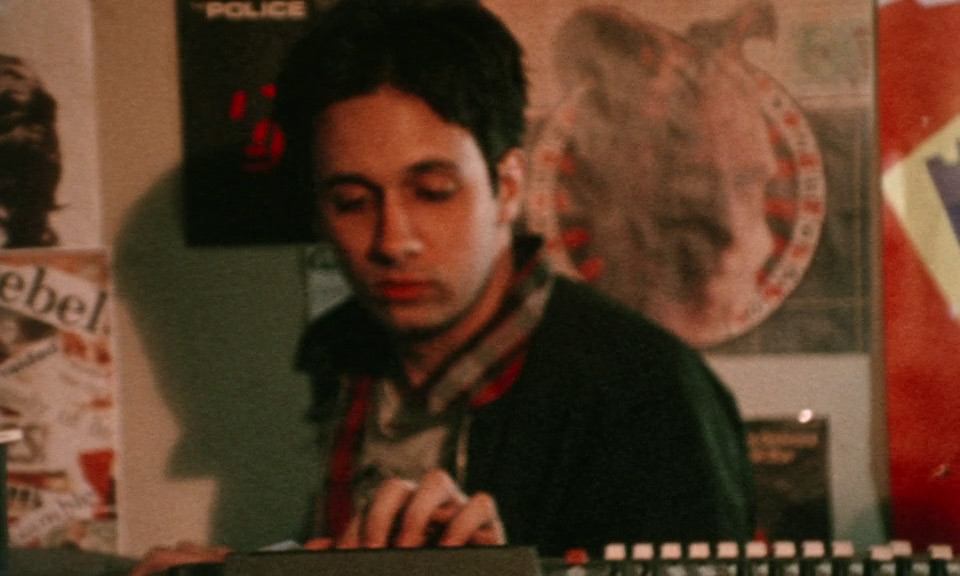
LR: [Laughs] Yeah, I watched this recently, because it played at Roxy Cinema. There’s footage of you making music in the movie, and so there's this almost documentary aspect to it, where, you know, Ronnie's filming you making music.
PG: The stuff on the SONGS record is relatively contained. There's not much before, oh, six, seven years ago. So the plan is to start bringing out, like, you know, EP after EP after EP, going to mine the vault, that sort of thing. I mean, the next 10 years is going to be like, I want to bring out 20 EPs with commissioned artwork, different titles, just why not. It's great fun to do.
LR: It’s just so great that it wasn't being fucked with by the outside world too much. Your song-recording shit, it has this integrity, an honesty to it, you know? I find it fascinating because it's just like, no one came in saying your second record's got to be like this, and your third record's got to be like this, you know?
PG: That’s very perceptive. Yeah, nothing remotely like that occurred. Well, in a way, it's very simple. I have had this ability, all the way back to childhood, of just flipping a switch and going 100% into an abstract world. I don't even know who I am. So that's part of why the stuff does sound so hermetically sealed or vacuum-sealed or whatever.The speeding up of the voice thing I'm so into is part of it too. It just removes it more from reality. I’ve noticed with some gratification that a lot of the new hyper-pop and K-pop stuff often has the Vari-speed vocal. I like that. It just removes things even further into an artificial world. I was getting that from Prince and Zappa and Van Dyke Parks a bit—that sort of cartoon artifice.
LR: In Frownland, did you feel like you were portraying yourself as a musician or purely like a character?
PG: Well, it was me in the sense that it's me on screen, and it's my voice and those are the clothes I would have been wearing at the time and so on. But, it’s a very grotesquely amped version, deliberately made more egoistic and obnoxious. Frownland is really about these two guys and how they’re put in a position of having to talk to each other, and they hate each other. And, one of them is really kind of verbally extravagant and domineering and pompous and coercive. And the other is basically just like grunting and groveling and choking on the words. With Charles, I think that was mostly about verbal performance. The connection you’re asking about then is that it's all performance. I think the verbal part is performance. I think the recording part is performance.
LR: Yes, like the Prince of Air single, it kind of has this Dr. Jekyll/Mr. Hyde thing going on. There's some Thriller-style laughter in there.
PG: Nice that you caught that. Yeah, those are sort of ghouls or demons haunting the Prince of Air. But he defeats them. He flies “into upper air,” and the “iniquities” are vanquished! That’s all in the lyric sheet.
LR: So crazy that the arc of your acting resume went from Frownland to the new Paul Thomas Anderson movie One Battle After Another. The style of production of Frownland would be, you know, getting a call, I would assume on a house phone at that point saying show up at this place, you know, I'll get you a cup of coffee.
PG: Yeah, I'll get you a bagel and a coffee, right. That was my compensation on set during Frownland. I mean, you gotta realize how absolutely ghetto that was. That was like one person holding a camera. There wasn't even someone holding a boom. And looking back on it, it was really fun!
We were just tooling around New York in Ronnie’s parents’ car and shooting that thing. It's super bizarre to me that it became some sort of seminal indie film. I guess it makes sense. It's cool. It's like nothing else, nothing. I think what Ronnie wanted, and it was smart of him to set it up this way, was really these two people who are on the spectrum in completely different ways. He wanted someone who was so anxious that he could barely function, and then the other guy who's so manically verbose, but also kind of a coercive despot and a bully, and in his own way is obtuse and doesn’t get the social cues. And he pits these two people against each other as roommates in deepest bohemian Brooklyn, which is kind of an excellent idea.
LR: You know, by the time we put this out there, the PTA film will have come out. You kept the soundtrack work going on, and then all of a sudden you're a professor at Yale, and then you find yourself on this massive Warner Brother production, extremely large budget film set. That must be a strange development.
PG: Completely weird. Ronnie said the other day, if you look at my IMDb it says 2008, Frownland, 2025, One Battle After Another, so it makes me look like an actor with the pickiest, most eccentrically high standards ever!
LR: Yeah, with like, you know, Leonardo DiCaprio standing across from you!
PG: Leo was incredibly cool, welcoming, gracious, warm. He was a blast to work with, a total pro. So so fucking good. Incredible instincts, nuance. Remarkable thing to observe from close up, him and Paul working. I really could not believe I was sitting there. And they were both totally cool, respectful, to this tyro from Yale, from NYC. Talk about imposter syndrome!
LR: There is a preservation of continued artistic development that led to this moment, of being dropped into this huge Hollywood production And being able to hang.
PG: Again, you luck out. Benny Safdie is a buddy, and if Benny hadn't been in Licorice Pizza, then I’m not sure any of this would have come about. So, it starts with, you score stuff for people, you do music for the Safdie brothers, and a relationship starts… I feel very blessed. And so you're right about the constant work, that's at the back of it all.
LR: Absolutely. For me, music is this thing that starts to emerge at different periods of life where you realize, I'm so glad I have this. You followed through on that instinct of, ‘I want to learn guitar!’
PG: Yes. I think that's right. Beautifully said. And then it just depends on how ambitious you want to be—structurally, formally, compositionally. You know, one way of evolving over the long haul, over these decades of constant work is just to get more and more into structure and arrangement. And when you get more into that, then you get more excited about music and you get better at it. Then what you're doing is you're pushing yourself to try more and more far out shit and see if you can do it. If you listen to stuff like Sacco and Vanzetti or Santa and the Doob, or One Hollow Vale, you can hear some experiments with song form in there that is… not normal.
LR: Santa and the Doob Parts One through three!
PG: Yeah man.
LR: And not only that, there's a lot of new technology. It's hard to make time signatures switch inside of a computer.
PG: It's funny you say that because I've had an Akai MPC-2000 since the late ‘90s. I’ll seize every chance to sing the praises of the Akai MPC-2000, which is one of the greatest pieces of music technology ever made. I believe the Shockley brothers used the MPC-2000 to make the Public Enemy records. I bought one around ‘97. It was the second generation MPC, the 2000 XL. Have had it ever since.
The thing is an absolute workhorse. It's like a piece of military technology. That is, until earlier this summer, when my MPC 2000 broke! I couldn’t dial anything in on the encoder wheel, couldn’t arrange, couldn’t edit. After 25 years, it broke. I was beside myself. I spent like two days in bed, just so worried.
LR: It's not fixable?
PG: It's not. And I took it down to Rogue. I don't know if you've ever been to Rogue. [Rogue Music on 29th street.]
Great place. You know, those guys are great. I brought it to that guy in the back and he took it apart and was like, “No go man. This thing is cooked.” And I go, “Can I get a new one?” And he’s like, “They don't make this piece anymore.”
I'm like, “Oh my god, how am I gonna code? How am I gonna sequence drum parts? How am I gonna do all the tempo and time changes?” I’m losing it because the MPC is really so fucking intuitive and amazing. You just dial all this stuff in from scratch and it doesn’t pester you with ugly presets. And then I did an incredibly stupid thing. I got the newest one, the current MPC. It's called the MPC1, I believe. And dude, you know what? it's a fucking karaoke machine. You can't even, I'm serious, you can't even program it. You turn it on, it starts playing by itself.
LR: It's got all these presets.
PG: Yeah, and the presets are so thick , so multi-layered and dense that you can barely fucking hack your way through to a simple blank. All I want is a blank machine that you can program from the ground up, with nothing in it. From scratch. And this new one was like, I turn it on and I am already sounding like a SoHo shoe store and I haven’t even touched anything!
LR: People don't want to make something, they want to just fuck around with something already made. It’s like putting a filter on something already made. It’s not using a tool to create a thing.
PG: Exactly. I ended up sending the thing back. I was just so distraught. Then I went online, I went on Reverb and I bought another one of the old MPCs. I won't tell you how much I paid for it. I got the same one from the ‘90s. I had to have it. There's just no way around it. And this goes back to what you were asking about odd time signatures, you know? It's the most intuitive sequencer for doing that sort of programming. I was texting with Dan Lopatin about the MPC the other day and I was like, the new MPCs are dreadful. They're absolutely awful. And he's like, “Oh, you know, they're whatever. They’re fine if you’re making hip-hop.” He’s like, “Dude, you’re making prog rock on an MPC, I don’t know anyone who’s doing that!”
LR: [Laughs] Like Dark Tower and Santa and stuff, yeah, there is all this tempo and meter stuff constantly changing.
PG: Yeah man, prog!
